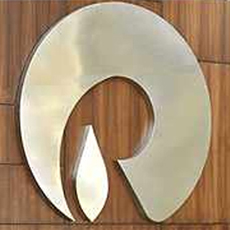 Reliance Industries, owner of world's largest refining complex, today said it plans to raise capacity at its twin refineries at Jamnagar in Gujarat as part of the company's plans to double profit in 4-5 years.
Reliance Industries, owner of world's largest refining complex, today said it plans to raise capacity at its twin refineries at Jamnagar in Gujarat as part of the company's plans to double profit in 4-5 years.
"Our chairman (Mukesh Ambani) has said (that) Reliance will be doubling (operating) profit. Downstream (oil refining and marketing) are very much part of this plan," RIL CEO (Refining & Marketing) Tony Fountain told reporters at the Petrotech 2012 conference in New Delhi.
RIL operates 33 million tonne domestic-tariff area or DTA refinery that sells most of its products to domestic market, and 29 million tonne only-for-exports or SEZ unit.
"We are very much looking at all sorts of plans (for expanding refining capacity)," he said. "We are looking at (expansion) options at both DTA and SEZ refineries."
Ambani on June 7 announced investments of $12 billion in the company's core petrochemical and oil and gas businesses as well as in the new sectors of retail and telecom, to double operating profits in 4-5 years.
Refinery expansion was not part of the plans Ambani had outlined to company shareholders on June 7.
Fountain said RIL was also "looking at (refinery) configuration" to produce more value added products.
He, however, refused to provide details of investment or the expansion the company was looking at.
RIL is setting up a $4 billion petroleum coke gasification project that will produce synthetic gas that will replace expensive LNG as fuel at the refinery.
"We are adding significant project of petroleum coke gasification," he said.
India's oil refining capacity will rise 24 per cent to about 267 million tonnes by 2015-16. These plans do not include RIL expansion.
He said the company continues to keep most of its 1,452 petrol pumps closed in the absence of a level playing field with its main public sector competition.
While the
government has freed petrol pricing, diesel continues to be sold at a heavily subsidised rates.
"We are not selling diesel anywhere. . . Only a few outlets are operating (for petrol sales)," he said.
"We were 13 per cent of the market (before outlets were shutdown as it could not complete with public sector)."
"We are ready to reopen (petrol pumps) if the fiscal environment is right," he said, adding that the government should either free diesel pricing from its control or provide subsidy equivalent to private firms as well.
India has 25 oil refineries with a crude oil processing capacity of 215.066 million tonne.
This will rise to 264.966 million tonne by 2015-16 as fuel demand grows.
Diesel consumption grew by 7.8 per cent in 2011-12 and by 10.2 per cent in the first quarter of current fiscal.
This does not take into account the possible expansion by RIL.
Indian Oil Corp, the nation's largest oil firm, plans to raise its refining capacity by 36.5 per cent to 74 million tonne.
It will raise Koyali refinery capacity to 18 million tonne, from current 13.70 million tonne besides building a new 15 million tonne unit at Paradip in Orissa.
Hindustan Petroleum Corp Ltd plans to raise its Mumbai refinery capacity from 6.5 million tonne to 8.20 million tonne and de-bottleneck its Visakhapatnam unit to increase capacity to 9 million tonne, from 8.3 million tonne.
Similarly, Bharat Petroleum Corp Ltd plans to de-bottleneck its Mumbai refinery to raise its capacity from 12 million tonne to 13.5 million tonne and hike Kochi unit capacity to 15.5 million tonne, from 9.5 million tonne.
Mangalore Refinery and Petrochemical Ltd will raise capacity to 16.5 million tonne, from 15 million tonne.
In private sector, Essar Oil will hike capacity of its Vadinar refinery in Gujarat to 30.80 million tonne, from 18 million tonnes by 2015-16.
Nagarjuna Oil Corp Ltd's 6.10 million tonne refinery at Cuddalore is likely to be commissioned by 2015-16.
© Copyright 2024 PTI. All rights reserved. Republication or redistribution of PTI content, including by framing or similar means, is expressly prohibited without the prior written consent.

 Reliance Industries, owner of world's largest refining complex, today said it plans to raise capacity at its twin refineries at Jamnagar in Gujarat as part of the company's plans to double profit in 4-5 years.
Reliance Industries, owner of world's largest refining complex, today said it plans to raise capacity at its twin refineries at Jamnagar in Gujarat as part of the company's plans to double profit in 4-5 years.